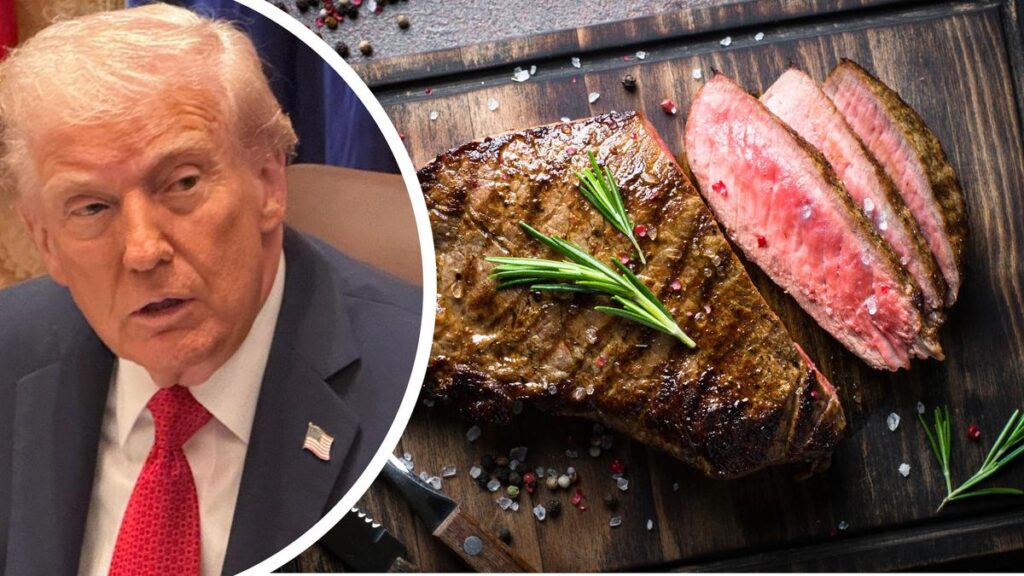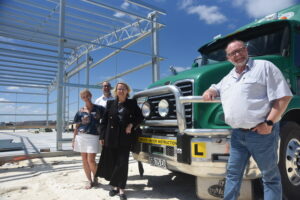
WA producers say they are in the box seat to benefit from US President Donald Trump’s decision to lower US tariffs on agricultural imports.
Western Australian (WA) agricultural producers are poised to take advantage of a significant policy shift by US President Donald Trump, who recently signed an executive order to lower tariffs on agricultural imports. This decision, announced on November 13, 2025, specifically targets key Australian exports including beef, bananas, coffee, and tomatoes, exempting them from the reciprocal tariffs that had been imposed earlier.
The executive order marks a change in direction for the Trump administration, which had previously instituted tariffs on a wide range of imported goods, starting at a rate of 10 percent. According to the White House statement, the modifications to the tariff structure aim to alleviate rising prices for consumers in the United States. The announcement comes as Trump faces mounting pressure from voters regarding the cost of living.
Beef stands out as Australia’s largest export to the United States, and WA cattle farmers are likely to see substantial benefits from this reversal. Tony Seabrook, President of the Pastoralists & Graziers Association of WA, emphasized the state’s advantageous position to supply beef to American markets. “Any extra demand in the world always raises those prices, and we are in the box seat when it comes down to supplying beef to America because we have open channels there,” he noted.
Seabrook explained that WA’s cattle herd is divided between agricultural regions and the grass-fed cattle of the Kimberley region, which may resonate well with American consumers looking for sustainably sourced products. He remarked, “They grow on the range lands and that ought to have huge appeal to all of those that prefer to buy their stuff off the range lands, clean and green.”
The decision to lower tariffs comes against the backdrop of surging beef prices in the US, which has raised concerns among consumers. Kevin Hassett, Director of the White House National Economic Council, stated, “That’s something that we’re going to fix, and we’re going to fix it right away.” In 2024, Australia exported 394,716 tonnes of beef to the US, valued at approximately $4.16 billion, according to Meat and Livestock Australia.
While the tariff exemptions apply to a range of agricultural products, including pineapples and avocados, the implications for beef exports are particularly notable. Despite the previous tariffs, Australian beef exports to the US have risen by 17 percent this year, with 370,357 tonnes shipped to date. This increase is largely attributed to a decline in US beef production and higher tariffs on competing suppliers like Brazil.
Seabrook also pointed to the domestic challenges facing the US beef industry, mentioning that the American cattle herd is at historically low levels. “The shortage of beef over there is seeing the price of beef rise to the consumers in America,” he explained. He criticized the earlier tariffs, suggesting they ultimately penalized American consumers rather than protecting local producers.
Trade Minister Don Farrell welcomed Trump’s decision, reiterating the Australian government’s stance that tariffs are economically damaging. “Tariffs are an act of economic self-harm and ultimately hurt American consumers,” he stated. Farrell added that the Albanese Government would continue to advocate for the removal of unjustified tariffs on Australian products.
The tariff reductions come shortly after Trump finalized trade framework agreements with several Latin American countries, imposing varying tariffs on imports from Argentina, Guatemala, El Salvador, and Ecuador. The exemptions for certain agricultural products aim to help mitigate rising grocery prices, although experts highlight that global supply shortages also play a significant role in pricing dynamics.
As the US grapples with its beef supply shortfall, Cattle Australia has expressed readiness to assist. The organization’s chief executive remarked, “We welcome the news by the US to lower tariffs and any move in that market will have a positive effect here.” The ongoing border issues related to disease have further complicated livestock movement, making this tariff reduction a timely opportunity for Australian producers.
In summary, WA producers are strategically positioned to benefit from Trump’s recent tariff adjustments, with the potential to supply much-needed beef to the US market. As the agricultural landscape continues to evolve, the implications of these changes will be closely monitored by industry stakeholders and consumers alike.






